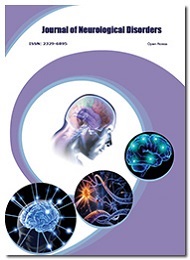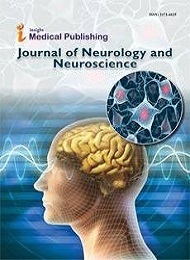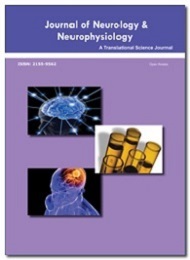The 11th World Summit on Epilepsy and Bipolar Disorders is scheduled for August 20-21, 2024 Montreal, Canada. This conference aims to convene experts, researchers, and practitioners across diverse disciplines related to epilepsy and bipolar disorder to exchange insights, advancements, and experiences.
The event will cover a wide array of topics, including diagnosis, treatment, management, prevention, and ongoing research in both epilepsy and bipolar disorder. Through keynotes, plenary sessions, poster presentations, and workshops, attendees will gain a comprehensive understanding of the latest developments and emerging trends in these fields.
By facilitating networking opportunities, idea exchange, and potential research collaborations, the conference offers participants a platform to engage with peers and leading experts. It serves as a conduit for learning about cutting-edge innovations in epilepsy and bipolar disorder research.
In essence, the 11th World Summit on Epilepsy and Bipolar Disorders represents a crucial opportunity for advancing the collective understanding and treatment of epilepsy and bipolar disorders, ultimately contributing to enhancing the quality of life for affected individuals.
There are several compelling reasons to participate in the 11th World Summit on Epilepsy and Bipolar Disorders:
Stay Informed: Keep abreast of the latest research and advancements in epilepsy and bipolar disorders, ensuring you remain current with the field's progress.
Networking Opportunities: Connect and engage with peers worldwide who share your interests in epilepsy and bipolar disorders, fostering valuable professional relationships.
Gain Fresh Insights: Expand your understanding of epilepsy and bipolar disorders, discovering novel perspectives and innovative approaches to their treatment, management, and prevention.
Present Research: Showcase your research findings to a diverse audience of experts, facilitating constructive discussions, receiving feedback, and potentially forging collaborations.
Experience Montreal: Immerse yourself in the enchanting atmosphere of Montreal, exploring its cultural treasures and landmarks, adding an unforgettable dimension to your conference experience.
Ultimately, attending the 11th World Summit on Epilepsy and Bipolar Disorders promises to enrich your knowledge, offer networking opportunities, and enable you to contribute to the advancement of these critical fields.
The 11th World Summit on Epilepsy and Bipolar Disorders welcomes a diverse spectrum of professionals invested in the field, including:
Researchers: Whether from academia or industry, researchers engaged in epilepsy and bipolar disorders can present their findings, exchange insights, and stay abreast of the latest breakthroughs.
Clinicians: Neurologists, psychiatrists, psychologists, and healthcare practitioners caring for individuals with epilepsy and bipolar disorders can access cutting-edge treatments, management strategies, and preventive approaches.
Educators: Those involved in educating others about epilepsy and bipolar disorders can discover innovative research and teaching methodologies to enhance patient care and outcomes.
Advocates: Representatives from advocacy groups and patient organizations advocating for individuals affected by epilepsy and bipolar disorders can gather insights into recent advancements and connect with like-minded advocates.
Students: Graduate students, postdoctoral fellows, and aspiring professionals keen on epilepsy and bipolar disorders can seize the opportunity to expand their knowledge, network with peers and experts, and explore potential career pathways.
In essence, the conference serves as a nexus for a broad array of professionals committed to advancing the comprehension and treatment of epilepsy and bipolar disorders.
Geriatric Epilepsy:
Geriatric epilepsy refers to epilepsy that develops in older adults, typically aged 65 and above. It presents unique challenges due to factors like age-related changes in the brain, presence of other medical conditions, and interactions with medications. Seizures in this population may be mistaken for other conditions like transient ischemic attacks or cognitive decline, making diagnosis trickier. Treatment often involves balancing seizure control with minimizing side effects from medications, considering the individual's overall health and quality of life.
Epilepsy in Women & Inborn:
Epilepsy in women presents unique considerations, particularly concerning hormonal fluctuations during menstruation, pregnancy, and menopause, which can affect seizure frequency. Antiepileptic drugs (AEDs) may interact with hormonal contraceptives, impacting effectiveness. Pregnancy requires careful management to balance seizure control and potential risks to the fetus from AEDs. Inborn errors of metabolism can lead to epilepsy, often presenting in infancy or childhood. Prompt diagnosis through genetic testing and metabolic evaluations is crucial for effective management and to prevent long-term complications.
Semiology and Pathophysiology of Epilepsy:
The semiology of epilepsy refers to the observable signs and symptoms of seizures, such as motor movements, sensory experiences, or alterations in consciousness. Pathophysiology involves the underlying mechanisms leading to abnormal neuronal activity, including genetic factors, structural brain abnormalities, neurotransmitter imbalances, and synaptic deregulation.
Prevention and Management of Neurodegenerative Disorders:
Prevention and management of neurodegenerative disorders involve lifestyle interventions, such as regular exercise, a balanced diet, and cognitive stimulation, to reduce risk factors. Additionally, early diagnosis, medication, and therapeutic strategies aim to slow disease progression, alleviate symptoms, and enhance quality of life for individuals affected by conditions like Alzheimer's and Parkinson's disease.
Novel Therapeutic Strategies for Epilepsy:
Novel therapeutic strategies for epilepsy include non-pharmacological approaches like ketogenic diet, vagus nerve stimulation, and responsive neurostimulation. Advancements in gene therapy, targeted drug delivery systems, and precision medicine hold promise for personalized treatments. These approaches aim to enhance seizure control, minimize side effects, and improve overall quality of life for patients with epilepsy.
Epilepsy in Children:
Epilepsy in children presents unique challenges due to developmental considerations and potential impacts on cognition and behavior. Treatment typically involves antiepileptic drugs tailored to the child's age and seizure type. Early intervention, comprehensive care, and support for both the child and their family are essential for optimal management and quality of life.
Prevention and Management of Epilepsy:
Prevention of epilepsy involves avoiding head injuries, managing underlying conditions, and minimizing risk factors like alcohol abuse. Management includes antiepileptic drugs, lifestyle modifications, and in some cases, surgery or neurostimulation therapies. Education, regular follow-ups, and support networks help individuals effectively manage their condition and improve overall quality of life.
Epilepsy Therapeutics:
Epilepsy therapeutics encompasses a range of treatments tailored to seizure type, frequency, and individual needs. Antiepileptic drugs are the mainstay, with newer options offering improved efficacy and tolerability. Other approaches include ketogenic diet, surgery, neurostimulation, and emerging therapies like gene therapy, aiming to enhance seizure control and quality of life.
Impact of Epilepsy on Daily Life:
Epilepsy can significantly impact daily life by affecting activities such as driving, employment, and social interactions. Seizures may lead to injury, memory difficulties, and emotional challenges, impacting relationships and independence. Fear of seizures can cause anxiety and restrict participation in certain activities, requiring ongoing management and support for individuals with epilepsy.
Epilepsy Imitators:
Epilepsy imitators are conditions that mimic seizures but have different underlying causes. These include syncope (fainting), psychogenic non-epileptic seizures (psychological origin), migraines, and movement disorders like tremors. Accurate diagnosis is crucial to avoid unnecessary treatment with antiepileptic drugs and ensure appropriate management of the underlying condition.
Chronic Disorder and Neurological Disorder:
Chronic disorders are conditions that persist over time, often requiring long-term management and care. Neurological disorders affect the nervous system, including the brain, spinal cord, and nerves, leading to symptoms like pain, muscle weakness, and cognitive impairment. Examples include epilepsy, Alzheimer's disease, multiple sclerosis, and Parkinson's disease.
Seizure Disorders:
Seizure disorders, including epilepsy, are characterized by recurrent, unprovoked seizures resulting from abnormal electrical activity in the brain. Seizures vary in type and severity, ranging from brief lapses in awareness to convulsions. Management typically involves antiepileptic drugs, lifestyle modifications, and sometimes surgical interventions to control seizures and improve quality of life.
Pediatric Epilepsy:
Pediatric epilepsy refers to epilepsy diagnosed in children. It presents unique challenges due to developing brains and varying seizure types. Treatment often involves antiepileptic drugs, tailored to the child's age and seizure characteristics. Early intervention, comprehensive care, and support for both the child and their family are crucial for optimal management.
Psychological Disorders:
Psychological disorders are conditions characterized by abnormal thoughts, emotions, or behaviors that cause distress or impairment in functioning. Examples include depression, anxiety disorders, schizophrenia, and bipolar disorder. Treatment may involve therapy, medication, or a combination of both, tailored to the individual's specific needs and circumstances.
Drug Delivery to Epilepsy Brain:
Drug delivery to the epileptic brain is challenging due to the blood-brain barrier's restrictive nature. Innovative approaches, such as nanoparticles, liposomes, and implantable devices, aim to enhance drug delivery efficiency and target specific brain regions while minimizing systemic side effects. These advancements hold promise for improving seizure control and patient outcomes.
Animal Model Epilepsy:
Animal models of epilepsy, such as rodents and zebra fish, play a crucial role in epilepsy research. These models help study seizure mechanisms, evaluate potential treatments, and understand the underlying pathophysiology. They provide valuable insights into epilepsy's complex nature and facilitate the development of novel therapeutic interventions for human patients.
Epilepsy and bipolar disorder are complex neurological conditions with significant impacts on individuals' lives. Market analysis for treatments related to these disorders typically reflects growing demand for innovative therapeutic approaches and management strategies.
For epilepsy, the market analysis may highlight the increasing prevalence of the condition globally, driving demand for antiepileptic drugs, diagnostic tools, and surgical interventions. With advancements in precision medicine, there's a growing focus on personalized treatment options tailored to individual patients' needs and genetic profiles.
Similarly, market analysis for bipolar disorder would likely underscore the rising awareness of mental health issues and the growing market for mood stabilizers, antipsychotics, and adjunctive therapies. The market may also see a surge in demand for digital health solutions, such as mobile apps and telemedicine platforms, aimed at improving monitoring and management of bipolar symptoms.
Overall, the market analysis for epilepsy and bipolar disorders would likely highlight opportunities for pharmaceutical companies, medical device manufacturers, research organizations, and digital health startups to innovate and address unmet needs in these therapeutic areas.





